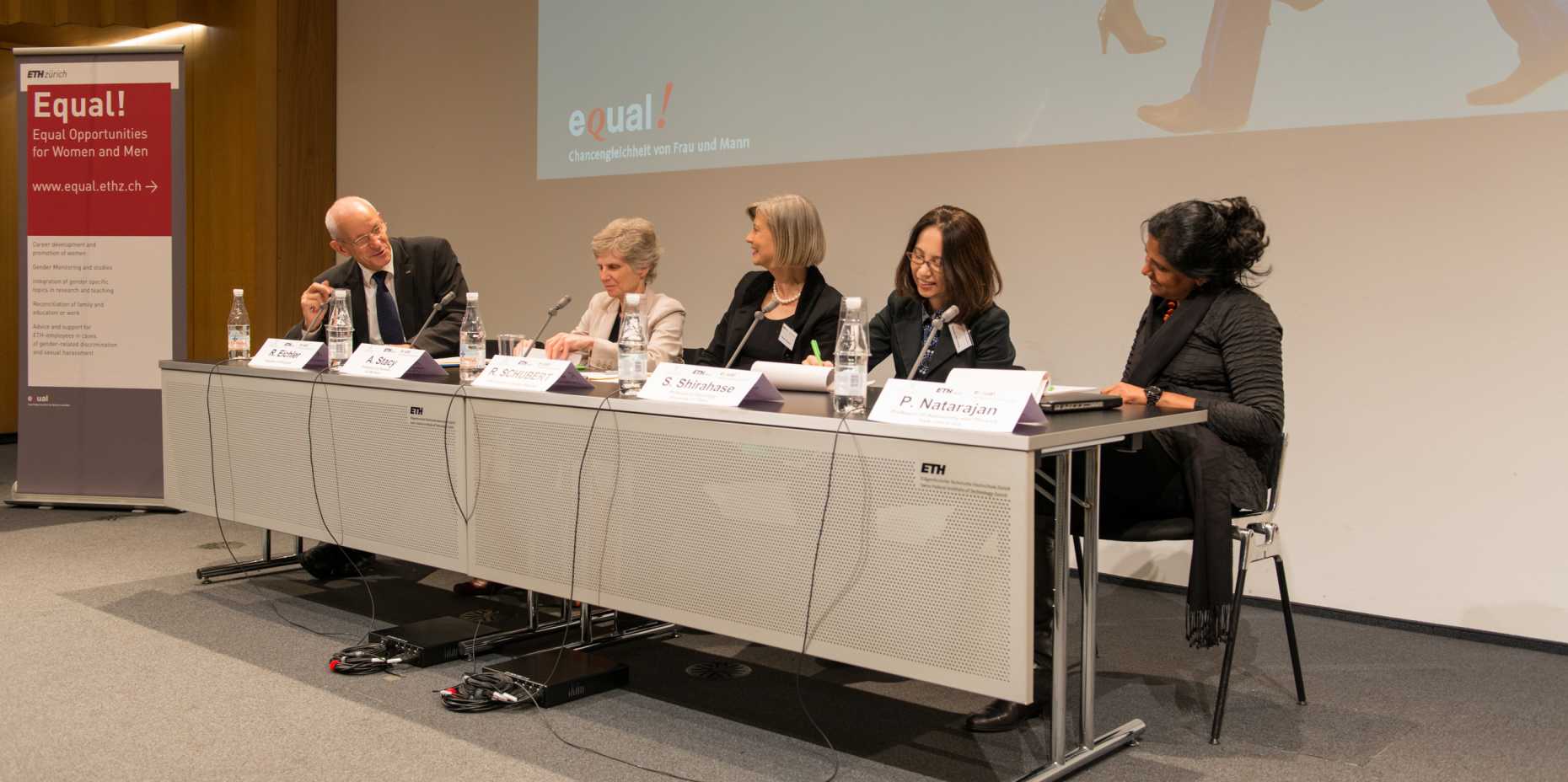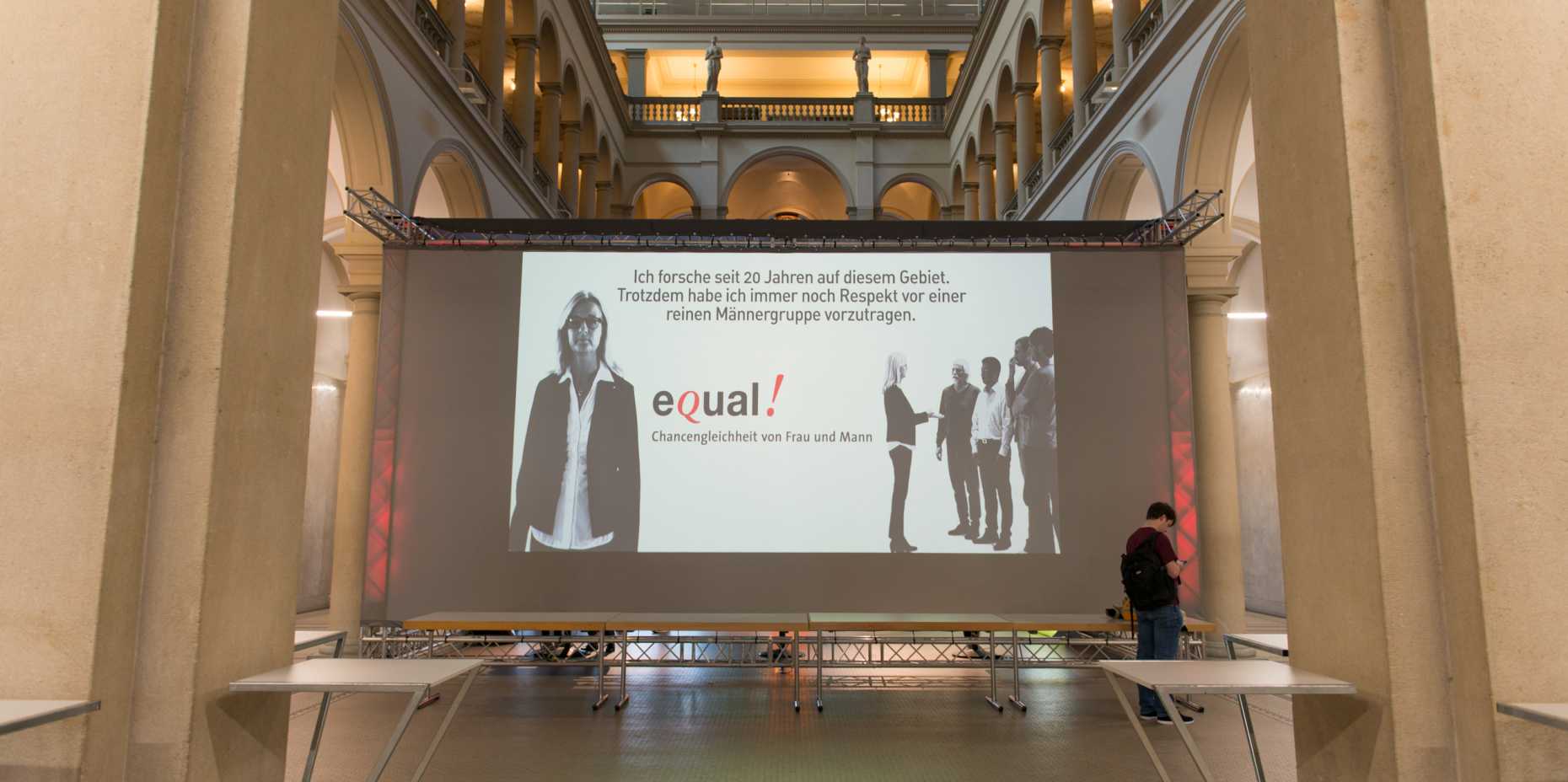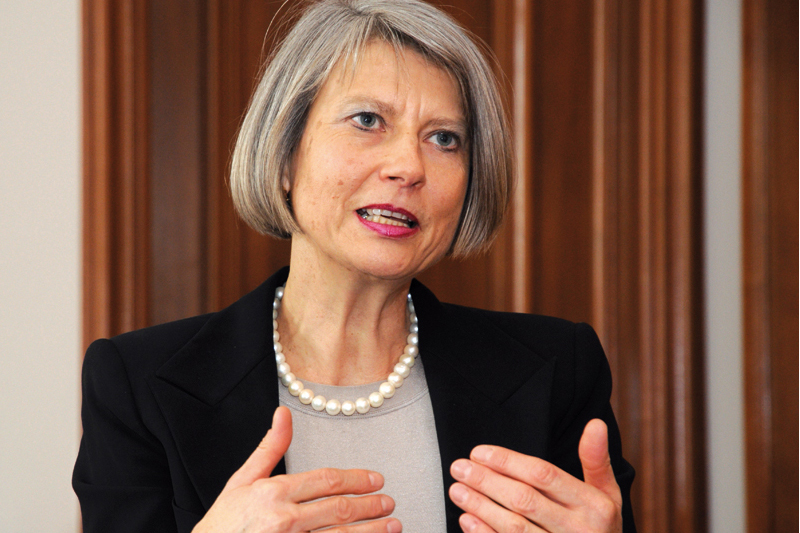“In an ideal future, we will be redundant”
For 20 years Equal has been committed to securing adequate conditions for men and women at ETH Zurich. The Office for Equal Opportunities at ETH Zurich is celebrating this anniversary with an exhibition and a panel discussion.
Renate Schubert is a Professor for Economics at ETH Zurich and has been the Delegate for Equal Opportunities since 2008. This evening, she will be moderating the panel discussion to mark the opening of the Check your stereotypes exhibition. In this interview, she reflects on the past and looks to the future.
ETH-News: Stereotypes are at the centre of the new exhibition. What kind of stereotypes do you consider to be particularly problematic?
Renate Schubert: A university setting has two main areas in which stereotypes play a role. One of these areas is careers’, where in a number of cases our thinking is still dominated by the traditional career model, in which the woman works part time while the man pursues a career and has little time to spend with his family. However, this model has become obsolete for many people, men and women alike. The other area in which stereotypes continue to play an important role is in the choice of field of study.
To what extent do stereotypes affect the subjects people choose?
Let me elaborate a bit on this issue: scientific studies have proven that mathematics’ ability is much more evenly spread among girls than among boys. When it comes to maths at school, there are very few exceptionally good or exceptionally bad female pupils. However, even if only one of the boys in the class is a stand-out pupil in maths, a lot of the girls start to doubt their own ability, primarily because of the stereotype that women don’t know maths. ETH’s image can then represent an obstacle when students come to select their study subjects. Our surveys have shown that a lot of secondary school leavers assume that a degree at ETH will be very challenging. This is true and should not be changed. However, we have to be aware that the response this image provokes in women is totally different to the response it provokes in men. Men prefer to step up and take on the challenge, while many women think that they don’t have what it takes and hence often opt for an ‘easier’ university.
People have known about stereotypes for a long time. Why do we need an exhibition on the topic?
Stereotypes exist for a reason: they make it easier for us to classify people and things. The problem, however, is that they can distort our view of an individual. Our exhibition aims at making people stop and think. It would be naive and unrealistic to believe that we can eliminate stereotypes altogether. This is why our exhibition is called “Check Your Stereotypes” rather than “Erase Your Stereotypes”. Whenever a stereotype rears its head and something appears to be impossible, we should ask ourselves whether there might actually be an alternative answer to the problem.
For the opening ceremony of the exhibition, you have invited representatives from the universities of Yale, Berkeley and Tokyo to join the panel and to discuss stereotypes in the global higher education landscape. What do you hope to achieve from this discussion?
The professors are supposed to tell us about the situation at their respective universities and about their own best practice experiences in matters relating to gender. When speaking to representatives from other universities, I often realise how many good ideas are out there, ideas that could also be introduced in some shape or form at ETH.
Your panellists are representatives of the International Alliance of Research Universities (IARU). Why did you select these people for the panel?
As ETH’s President Ralph Eichler is also the current IARU President, this year’s meeting of IARU’s gender delegates is taking place at ETH. Having so many experts on gender issues here in Zurich at the same time was an opportunity too good to pass up. This is why we decided to combine the IARU meeting with the celebration of Equal’s landmark anniversary. In return, our president will have the pleasure of being the only male panellist.
Have you had any previous contact with IARU’s gender delegates?
We met back in 2012 in Tokyo and were surprised at some of the things we discovered: the scope of gender monitoring, for example, and the methods used to apply it differ greatly between the different universities in the alliance. This means that we have limited scope to compare the proportion of women occupying various rungs of the academic career ladder at the different institutions.
The release of ETH’s Gender Monitoring Report 2012/13 will coincide with the event. How will it contribute to the discussion?
In the report we show how the ratio of men to women has changed over time at ETH as a whole and in each individual department. This allows us to quickly establish whether we have succeeded in achieving the targets agreed with the ETH Council. Our monitoring system has received a lot of praise within the IARU, not least because we provide well organised, comprehensible information rather than just a sea of numbers.

Are there any other networks for female professors aside from the IARU?
Only a very few at the institutional level. With the formation of the Women Professors’ Forum (WPF) at ETH, we have taken the first major step. This forum is a place for both younger and more experienced female professors to get together, talk to one another, provide mutual support and increase the visibility of female professors. Today, more than 80% of the female professors at ETH Zurich are members of the forum, and over the next few years it aims to forge stronger international links.
Looking back, what has Equal achieved during its 20-year existence?
We started out as just a small group in the HR department. Now we are affiliated with the President’s office. This shows the extent to which gender issues have grown in importance at ETH. It all started with the concept of combining a career with having a family – back then this meant changing tables and crèches. The focus then shifted to the number of women occupying the various academic positions at ETH and how the traditionally low proportion of women could be increased. We have made quite some progress so that we are now not only looking to recruit more female students and professors, but are also setting ourselves more ambitious goals.
What kind of goals are you setting?
We are looking at two different areas: first, to integrate gender issues into research more effectively and, second, to make a conscious effort to emphasise these issues when it comes to teaching. The Department of Health Sciences and Technology serves as a prime example in this context: as soon as technology is combined with interesting questions, it starts to appeal to women. In exams, too, there are some fascinating variations between women and men. Studies have shown that women perform better when smaller units of knowledge are examined. An experiment on this topic is about to get underway in the Department of Environmental Systems Science (D-USYS). Students will be offered a mid-term mathematics exam, part of which could count towards their final grade. We are interested in seeing whether any gender-specific variations will be identified.
What about plans to place a greater emphasis on gender issues in research?
The German Research Foundation (DFG) is very active in this area and uses gender-related activities as an evaluation criterion for decisions on research funding. A similar approach might also be a viable option for ETH Zurich.
What will Equal look like in the distant future?
In an ideal future, gender variations will be used productively to generate added value – if this trickles through, we will have made ourselves redundant.


Comments
No comments yet